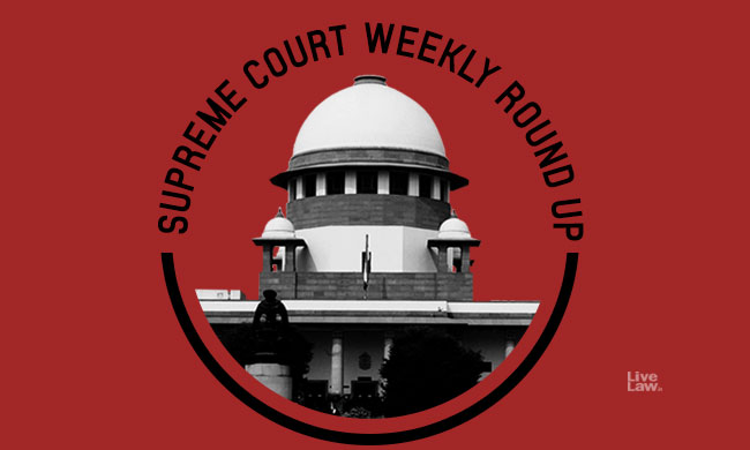- Home
- /
- Top Stories
- /
- Supreme Court Weekly Round-Up
Supreme Court Weekly Round-Up
Arabhi Anandan
10 Feb 2020 10:04 AM IST
[Specific Performance] Plaintiff Has To Prove That He Has Means To Generate Consideration Amount: SC [C.S. Venkatesh v. A.S.C. Murthy] The Supreme Court has observed that it is mandatory on the part of the plaintiff in a Specific Performance Suit to prove that he has the means to generate the consideration amount. The bench of Justices Abdul Nazeer and Deepak Gupta was considering...
Next Story



